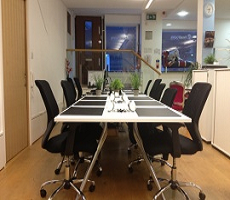June 5, 2013
Applications for UK commercial property developments continue to fall
 According to law firm EMW LLP, the number of planning applications submitted for commercial property developments in the UK has fallen for a second successive year. The firm claims that the around 4 percent fall is down to declining demand from tenants. However there are stark contrasts between London and the rest of the UK measured both in terms of market activity and the number of tower cranes on the skyline, with London now having more than the rest of the UK combined for the third consecutive year according to the Health and Safety Executive. The report echoes the findings of the latest Markit/CIPS report on construction activity which saw a fall in construction activity, although total activity increased on the back of an increase in housebuilding.
According to law firm EMW LLP, the number of planning applications submitted for commercial property developments in the UK has fallen for a second successive year. The firm claims that the around 4 percent fall is down to declining demand from tenants. However there are stark contrasts between London and the rest of the UK measured both in terms of market activity and the number of tower cranes on the skyline, with London now having more than the rest of the UK combined for the third consecutive year according to the Health and Safety Executive. The report echoes the findings of the latest Markit/CIPS report on construction activity which saw a fall in construction activity, although total activity increased on the back of an increase in housebuilding.




















May 28, 2013
Are these the world’s most spectacular corporate buildings?
by Mark Eltringham • Architecture, Comment
BMW Welt
Building data provider Emporis has issued a list of 16 of what it calls the World’s Most Spectacular Corporate Buildings. The list is intended to show how firms use architecture to convey their identity and to impress anybody viewing their supposedly imposing corporate edifices. The Germany based firm claims the list was compiled by a jury of buildings experts from around the world who considered a range of factors and included buildings from all kinds of industries. Even so, the list is far from subtle with not even an attempt at lip service paid to the esoteric or surprising. It is dominated instead by glamorous blue chip businesses and buildings that are tall, designed by renowned architects or literal reflections of each company’s business. (more…)